|
Books Should Be Free Loyal Books Free Public Domain Audiobooks & eBook Downloads |
|
|
Books Should Be Free Loyal Books Free Public Domain Audiobooks & eBook Downloads |
|
Fiction |
|---|
|
Book type:
Sort by:
View by:
|
By: Edward Bellamy (1850-1898) | |
|---|---|
 To Whom This May Come 1898
To Whom This May Come 1898
| |
By: Edward C. Taylor | |
|---|---|
 Ted Strong's Motor Car Or, Fast and Furious
Ted Strong's Motor Car Or, Fast and Furious
| |
 Ted Strong in Montana Or, With Lariat and Spur
Ted Strong in Montana Or, With Lariat and Spur
| |
By: Edward Dyson (1865-1931) | |
|---|---|
 In the Roaring Fifties
In the Roaring Fifties
| |
 The Missing Link
The Missing Link
| |
 The Gold-Stealers A Story of Waddy
The Gold-Stealers A Story of Waddy
| |
By: Edward Eggleston (1837-1902) | |
|---|---|
 Hoosier Schoolmaster
Hoosier Schoolmaster
"Want to be a school-master, do you? You? Well, what would you do in Flat Crick deestrick, I'd like to know? Why, the boys have driv off the last two, and licked the one afore them like blazes. You might teach a summer school, when nothin' but children come. But I 'low it takes a right smart man to be school-master in Flat Crick in the winter. They'd pitch you out of doors, sonny, neck and heels, afore Christmas." | |
 Queer Stories for Boys and Girls
Queer Stories for Boys and Girls
| |
 The Faith Doctor A Story of New York
The Faith Doctor A Story of New York
| |
 The Hoosier School-boy
The Hoosier School-boy
| |
By: Edward Eldridge | |
|---|---|
 A California Girl
A California Girl
| |
By: Edward Elmer Smith (1890-1965) | |
|---|---|
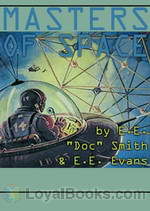 Masters of Space
Masters of Space
The Masters had ruled all space with an unconquerable iron fist. But the Masters were gone. And this new, young race who came now to take their place–could they hope to defeat the ancient Enemy of All? | |
By: Edward Everett Hale (1822-1909) | |
|---|---|
 The Man Without a Country and Other Tales
The Man Without a Country and Other Tales
| |
 Christmas Eve and Christmas Day
Christmas Eve and Christmas Day
This is a collection of ten Christmas Stories, some of which have been published before. I have added a little essay, written on the occasion of the first Christmas celebrated by the King of Italy in Rome. | |
 The Brick Moon and Other Stories
The Brick Moon and Other Stories
| |
 Man Without A Country And Other Tales
Man Without A Country And Other Tales
Edward Everett Hale (1822 – 1909) was an American author, historian and Unitarian clergyman. Hale first came to notice as a writer in 1859, when he contributed the short story "My Double and How He Undid Me" to the Atlantic Monthly. He soon published other stories in the same periodical. His best known work was "The Man Without a Country", published in the Atlantic in 1863 and intended to strengthen support in the Civil War for the Union cause in the North. Though the story is set in the early 19th century, it is an allegory about the upheaval of the American Civil War... | |
 If, Yes and Perhaps Four Possibilities and Six Exaggerations with Some Bits of Fact
If, Yes and Perhaps Four Possibilities and Six Exaggerations with Some Bits of Fact
| |
By: Edward George Bulwer-Lytton (1803-1873) | |
|---|---|
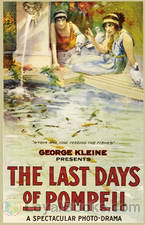 Last Days of Pompeii
Last Days of Pompeii
The Last Days of Pompeii, a novel by Edward George Bulwer-Lytton tells the love story of the Greeks Glaucus and Ione who were living in Pompeii when Mt. Vesuvius erupted and destroyed the city. But aside from telling their romance, the book is also full of insights about the decadent lifestyle of the Romans during the later part of their empire’s history. The different characters in the story represent the different civilizations which they come from. Glaucus, the main protagonist in the novel was portrayed as a handsome Greek nobleman... | |
 The Coming Race
The Coming Race
Edward George Earle Lytton Bulwer-Lytton, 1st Baron Lytton (1803-1873) was an English novelist, poet, playright, and politician. Lord Lytton was a florid, popular writer of his day, who coined such phrases as “the great unwashed”, “pursuit of the almighty dollar”, “the pen is mightier than the sword”, and the infamous incipit “It was a dark and stormy night.” Despite his popularity in his heyday, today his name is known as a byword for bad writing. San Jose State University holds... | |
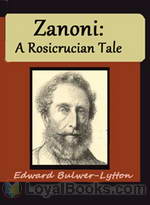 Zanoni
Zanoni
Zanoni, a timeless Rosicrucian brother, cannot fall in love without losing his power of immortality; but he does fall in love with Viola Pisani, a promising young opera singer from Naples, the daughter of Pisani, a misunderstood Italian violinist. An English gentleman named Glyndon loves Viola as well, but is indecisive about proposing marriage, and then renounces his love in order to pursue occult study. The story develops in the days of the French Revolution in 1789. Zanoni has lived since the Chaldean civilization... | |
 Rienzi, Last of the Roman Tribunes
Rienzi, Last of the Roman Tribunes
| |
 Leila or, the Siege of Granada
Leila or, the Siege of Granada
| |
 Godolphin
Godolphin
| |
By: Edward H. Hurlbut | |
|---|---|
 Lanagan Amateur Detective
Lanagan Amateur Detective
This is a 1913 collection of ten short detective stories by a not well known writer. Jack Lanagan is a police reporter for a daily newspaper in San Francisco, who has the confidence of the chief of police and access to all sorts of levels of city life. - Summary by David Wales | |
By: Edward Howard (-1841) | |
|---|---|
 Rattlin the Reefer
Rattlin the Reefer
| |
By: Edward Jenkins (1838-1910) | |
|---|---|
 Ginx's Baby: his birth and other misfortunes; a satire
Ginx's Baby: his birth and other misfortunes; a satire
| |
By: Edward Lear (1812-1888) | |
|---|---|
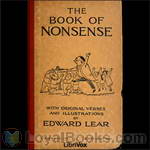 A Book of Nonsense
A Book of Nonsense
In 1846 Lear published A Book of Nonsense, a volume of limericks that went through three editions and helped popularize the form. This book contains 112 of these funny, imaginative verses that have been well loved by many generations of children (and adults). ( | |
 Nonsense Songs, Stories, Botany and Alphabets
Nonsense Songs, Stories, Botany and Alphabets
A selection of nonsense poems, songs (not sung!), stories, and miscellaneous strangeness. The work includes the "Owl and the Pussycat" and a recipe for Amblongus Pie, which begins "Take 4 pounds (say 4½ pounds) of fresh ablongusses and put them in a small pipkin."Edward Lear was an English writer, poet, cat-lover, and illustrator (his watercolours are beautiful). This recording celebrates the 200th anniversary of Lear's birth. | |
 Nonsense Drolleries The Owl & The Pussy-Cat—The Duck & The Kangaroo.
Nonsense Drolleries The Owl & The Pussy-Cat—The Duck & The Kangaroo.
| |
 More Nonsense
More Nonsense
| |
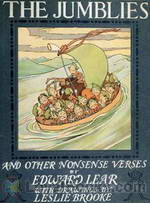 Nonsense Verses by Edward Lear
Nonsense Verses by Edward Lear
This is a collection of some of the delightful nonsense verses and stories by Edward Lear. A lot of them are also my favorites. The Jumblies, The Owl and the Pussy-cat; the Broom, the Shovel, The Poker and the Tongs; The Duck and the Kangaroo; The Cummerbund; The Dong with the Luminous Nose; The New Vestments; Calico Pie; The courtship of the Yonghy-Bonghy-Bo and Incidents in the Life of My Uncle Arly. Also included at no extra cost are two sections with my favorite Lear limericks. Only about 30 of them but they are all funny and full of delectable silliness. I hope you enjoy listening to these as much as I enjoyed recording them. | |
By: Edward M. Forster (1879-1970) | |
|---|---|
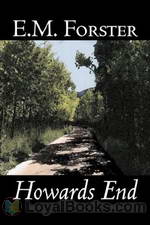 Howards End
Howards End
It's sad, but true to say that today Edward Morgan Forster's works are known more from their film and television adaptations rather than from their original novels. Yet, these adaptations have spurred many a fascinated viewer into going back to the library and finding the book that the film or miniseries was based on and this is ultimately the power of Forster's literary appeal. Howard's End was published in 1910 and it marked Forster's first taste of critical and commercial success. He had published three other novels earlier, Where Angels Fear To Tread (1905), The Longest Journey (1907) and A Room With a View (1908) but none of them had been received with so much acclaim... | |
 Where Angels Fear to Tread
Where Angels Fear to Tread
On a journey to Tuscany with her young friend and traveling companion Caroline Abbott, widowed Lilia Herriton falls in love with both Italy and a handsome Italian much younger than herself, and decides to stay. Furious, her dead husband’s family send Lilia’s brother-in-law to Italy to prevent a misalliance, but he arrives too late. Lilia marries the Italian and in due course becomes pregnant again. When she dies giving birth to her child, the Herritons consider it both their right and their duty to travel to Monteriano to obtain custody of the infant so that he can be raised as an Englishman. | |
 The Machine Stops
The Machine Stops
"The Machine Stops" is a science fiction short story by E. M. Forster. After initial publication in The Oxford and Cambridge Review (November 1909), the story was republished in Forster's The Eternal Moment and Other Stories in 1928. After being voted one of the best novellas up to 1965, it was included that same year in the populist anthology Modern Short Stories. The story describes a world in which most of the human population has lost the ability to live on the surface of the Earth. Each individual now lives in isolation below ground in a standard 'cell', with all bodily and spiritual needs met by the omnipotent, global Machine. | |
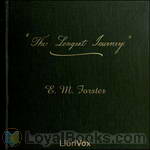 The Longest Journey
The Longest Journey
Frederick Elliot is a student at early 20th century Cambridge, a university that seems like paradise to him, amongst bright if cynical companions, when he receives a visit from two friends, an engaged young woman, Agnes Pembroke, and her older brother, Herbert. The Pembrokes are Rickie’s only friends from home. An orphan who grew up living with cousins, he was sent to a public (boarding) school where he was shunned and bullied because of his lame foot, an inherited weakness, and frail body. Agnes, as it happens, is engaged to Gerald, now in the army, who was one of the sturdy youths who bullied Rickie at school... | |
 Machine Stops (version 4)
Machine Stops (version 4)
"The Machine Stops" is a science fiction story by E. M. Forster. After initial publication in 1909 the story was republished in Forster's The Eternal Moment and Other Stories in 1928. After being voted one of the best novellas up to 1965, it was included that same year in the populist anthology Modern Short Stories. In 1973 it was also included in The Science Fiction Hall of Fame, Volume Two. The story is particularly notable for predicting new technologies such as instant messaging and the Internet... | |
By: Edward M. House (1858-1938) | |
|---|---|
 Philip Dru: Administrator
Philip Dru: Administrator
Philip Dru: Administrator: a Story of Tomorrow, 1920-1935 is a futuristic political novel published anonymously in 1912 by Edward Mandell House, an American diplomat, politician and presidential foreign policy advisor. His book's hero leads the democratic western U.S. in a civil war against the plutocratic East, and becomes the dictator of America. Dru as dictator imposes a series of reforms that resemble the Bull Moose platform of 1912 and then vanishes. | |
By: Edward Marshall (1870-1933) | |
|---|---|
 The Old Flute-Player A Romance of To-day
The Old Flute-Player A Romance of To-day
| |
By: Edward N. Hoare (1842-) | |
|---|---|
 A Child of the Glens or, Elsie's Fortunes
A Child of the Glens or, Elsie's Fortunes
| |
By: Edward Noyes Westcott (1847-1898) | |
|---|---|
 David Harum A Story of American Life
David Harum A Story of American Life
| |
By: Edward Ormondroyd | |
|---|---|
 David and the Phoenix
David and the Phoenix
David knew that one should be prepared for anything when one climbs a mountain, but he never dreamed what he would find that June morning on the mountain ledge. There stood an enormous bird, with a head like an eagle, a neck like a swan, and a scarlet crest. The most astonishing thing was that the bird had an open book on the ground and was reading from it! This was David’s first sight of the fabulous Phoenix and the beginning of a pleasant and profitable partnership. The Phoenix found a great... | |
By: Edward P. Cogger | |
|---|---|
 Funny Alphabet Uncle Franks' Series
Funny Alphabet Uncle Franks' Series
| |
By: Edward P. Roe (1838-1888) | |
|---|---|
 He Fell in Love with His Wife
He Fell in Love with His Wife
James desperately needs someone to help him keep his farm going, but has failure after colossal failure finding a good housekeeper. Alida marries a man only to find out he's already married. She's so undone when she finds out that she just wants to go somewhere where no one will judge her for her misfortune, where she can work and keep herself fed and clothed. James and Alida meet and arrange for a strictly business marriage, leaving loving and honoring out of the vows. The title of the book tells the rest of the story, but the way it gets there is worth the journey. (Introduction by TriciaG) | |
By: Edward Payson Roe (1838-1888) | |
|---|---|
 Taken Alive
Taken Alive
| |
 A Face Illumined
A Face Illumined
| |
By: Edward Phillips Oppenheim (1866-1946) | |
|---|---|
 The Cinema Murder
The Cinema Murder
Phillip Romilly is a poor art teacher in London. He finds out that his wealthy cousin Douglas has been seeing his girl friend Beatrice behind his back. He strangles Douglas, throws him in the canal, and assumes his identity. Douglas had booked passage to America for the next day, so after a pleasant sea voyage Phillip arrives at the Waldorf Hotel in New York as Douglas Romilly. An hour after checking in he disappears again, and assumes yet another identity, one that his cousin had set up for himself. Douglas was facing massive financial problems, and he, too, had planned to avoid his problems by getting lost in the crowd in New York. Now, in chapter two…. | |
 The Zeppelin's Passenger
The Zeppelin's Passenger
The Zeppelin’s Passenger is a tale of German espionage in England during World War I. Dreymarsh is a fictional “backwater” area in England with no apparent military value. The story begins with Dreymarsh residents discovering an observation car from a German zeppelin along with a Homburg hat near Dreymarsh. The mystery is further complicated when an Englishman, Mr. Hamar Lessingham, presents himself at Mainsail Haul which is the residence of Sir Henry Cranston. Lessingham bears with him, hand-carried letters from Major Richard Halstead, and a British prisoner of war in Germany... | |
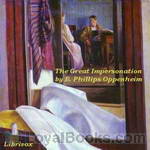 The Great Impersonation
The Great Impersonation
E. Phillips Oppenheim, an English novelist created well in excess of 100 novels and 30 plus collections of short stories. Most of his tales are thrillers and espionage. The Great Impersonation was written following World War I and is considered by many to be perhaps his best novel. The story focuses on German espionage in England prior to the start of World War I. The tale centers on two characters that are almost identical in appearance. Indeed, while both attend the same school in England, they are often mistaken for one another... | |
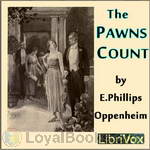 The Pawns Count
The Pawns Count
"I am for England and England only," John Lutchester, the Englishman, asserted."I am for Japan and Japan only," Nikasti, the Jap, insisted."I am for Germany first and America afterwards," Oscar Fischer, the German-American pronounced."I am for America first, America only, America always," Pamela Van Tale, the American girl, declared.They were all right except the German-American.It is during World War I. A chemist, Sandy Graham, has discovered a new powerful explosive, but he let's it slip in a London restaurant that he has made the discovery... | |
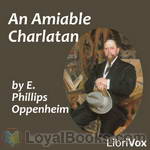 An Amiable Charlatan
An Amiable Charlatan
An Englishman is enjoying his dinner at Stephano's, at which he is a regular diner. A man enters quickly, sits at his table, starts eating his food, and hands him a packet underneath the table! So begins Paul Walmsley's acquaintance - and adventures - with American adventurer Joseph H. Parker and his lovely daughter, Eve. (Intro by TriciaG)Note that there is an alternate reading of section 8. Both are excellent renditions, so enjoy either or both of them. | |
 A Millionaire of Yesterday
A Millionaire of Yesterday
| |
 Havoc
Havoc
Havoc occurs when European countries are discussing covert alliances. The story revolves around the creation of a secret alliance between Germany, Russia, and Austria. The English hope to split Russia away by holding the Czar to his previous public commitments, but they need proof of what was done to create the pressure. All the pressures that lead to WWI are there, but the intrigues and secret treaties create an interesting background to the twists and turns of the plot. | |
 Anna the Adventuress
Anna the Adventuress
| |
 The Yellow Crayon
The Yellow Crayon
| |
 Jacob's Ladder
Jacob's Ladder
| |
 Peter Ruff and the Double Four
Peter Ruff and the Double Four
| |